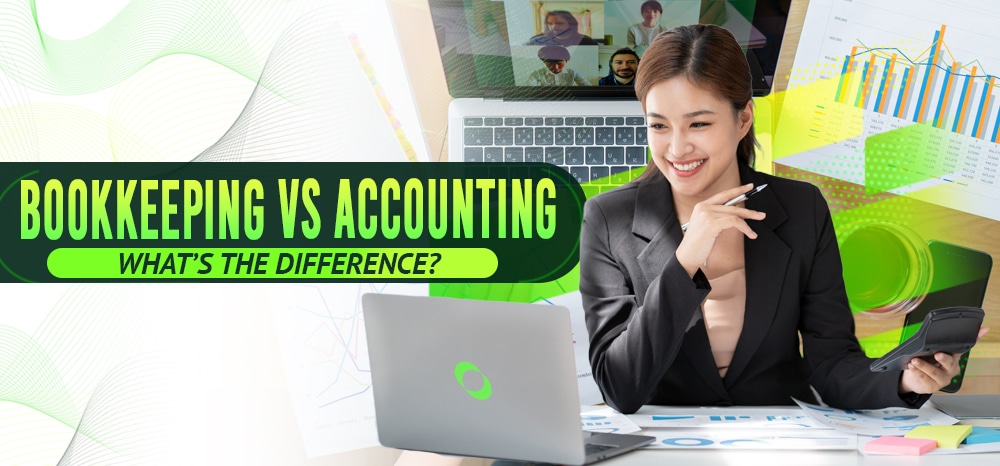Are you planning to work in bookkeeping or accounting? Right now, online job opportunities are abundant in this field.
So which should you choose: accounting or bookkeeping?
These terms are commonly conflated because they have similar responsibilities.
Some clients even use the term interchangeably in their job postings.
Still, they’re not the same, hence accounting jobs typically pay more than bookkeeping ones.
That said, here are the key differences between bookkeeping and accounting:
Primary Responsibility
Both bookkeepers and accountants process your financial data -like daily sales and expenses. The main difference is what they actually do with the data.
It’s a bookkeeper’s job to accurately record and organize financial transactions.
On the other hand, accountants analyze that financial data to assess the financial health of a business, identify trends, and provide recommendations to improve the state of a business’ finances.
So, accountants are essential to financial decisions, while bookkeepers focus mainly on recording financial data accurately.
Financial Reporting
Bookkeepers can generate basic financial reports (e.g., trial balances) and lodge tax forms.
However, their main role is limited to providing accurate data for more advanced financial reporting.
This is where accountants come in. Using the data from the bookkeepers, they prepare comprehensive financial reports that adhere to International Financial Reporting Standards (IFRS), coupled with the required disclosures.
Analysis and Interpretation
Bookkeepers can also provide simple analysis and interpretation of the recorded data. However, accountants are tasked with more advanced forms of analysis that’s crucial for decision-making.
For example, accountants of manufacturing firms can provide cost variance analysis between budgeted and actual expenses.
Another example is financial statement analysis, which involves ratios like inventory turnover, debt-equity ratio, etc.
Accountants can also do budgeting and forecasting, auditing, risk management analysis, and more.
Certification and Education
Lastly, while bookkeepers may possess formal education, they don’t need a certification to practice. Most gain practical experience on the job.
Conversely, accountants are armed with a more formal education, including a bachelor’s or master’s degree.
Plus, most countries require accountants to have a professional certification in order to practice, such as a Certified Public Accountant (CPA) or Chartered Accountant (CA) license.
There we have it: key differences between two in-demand online jobs in finance.
Fortunately, you can grow your remote working career by honing crucial accounting skills or bookkeeping expertise.
However, if you’re still looking for an online job, you can sign up with Remote Staff for the best remote working opportunities for Filipinos.
Remote Staff can connect you with their roster of clients in need of long-term bookkeeping or accountancy services.
Register today!





